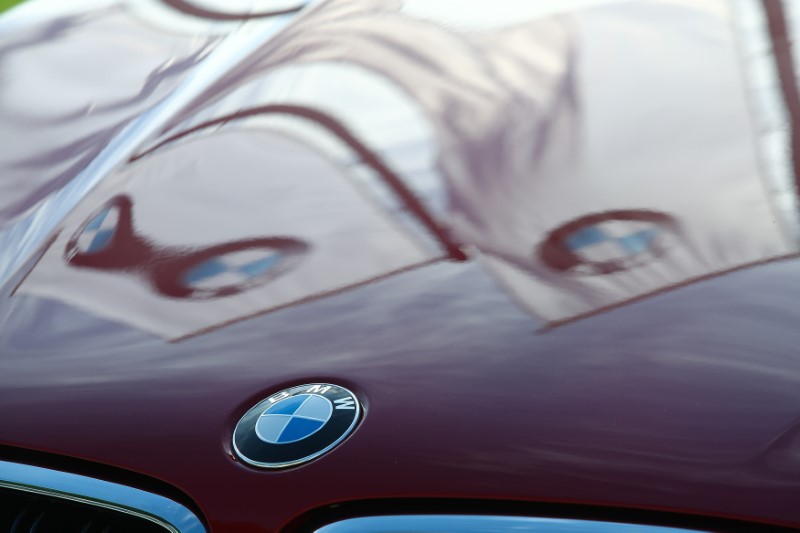FRANKFURT (Reuters) - BMW (DE:BMWG) expects its research and development budget, when measured as a percentage of sales, to rise in 2018, its CFO told a German paper.
"Reducing CO2 emissions, electrifying engines and autonomous driving are the key challenges for our industry over the next years," the carmaker's Chief Financial Officer Nicolas Peter told Boersen-Zeitung in an interview published on Saturday.
He said that R&D spending would account for about 6 percent of sales this year, up from 5.5 percent in 2016.
"Next year, too, should see a higher ratio," Peter was quoted as saying.
BMW expects sales to grow slightly this year compared with the 86.42 billion euros (74.2 billion pounds) generated in 2016, suggesting R&D spending of more than 5.19 billion euros in 2017.
For years, carmakers have struggled to bring down the cost of electric cars, which have failed to gain traction with consumers in part because of their price. At the same time, they are forced to cut the emissions of their fleets and face dwindling demand for diesel cars.
German Chancellor Angela Merkel, in her weekly Saturday podcast, also said it would be desirable for Europe's biggest economy to produce battery cells for electric cars locally and reduce dependency on Asian suppliers.
"And if we are part of the research, also with regard to the prototypes, then I think it improves the outlook of bringing modern production of next-generation cells back to Europe and Germany," she said.
Merkel on Monday said Germany was likely to miss the government's target of putting a million electric vehicles (EV) on the roads by the end of the decade, but added that a big breakthrough in demand for battery-powered cars could come very abruptly.

The sale of EVs has remained sluggish in Germany despite discounts introduced last year and granted to buyers of green cars. In 2016, there were less than 80,000 electric cars on German roads.